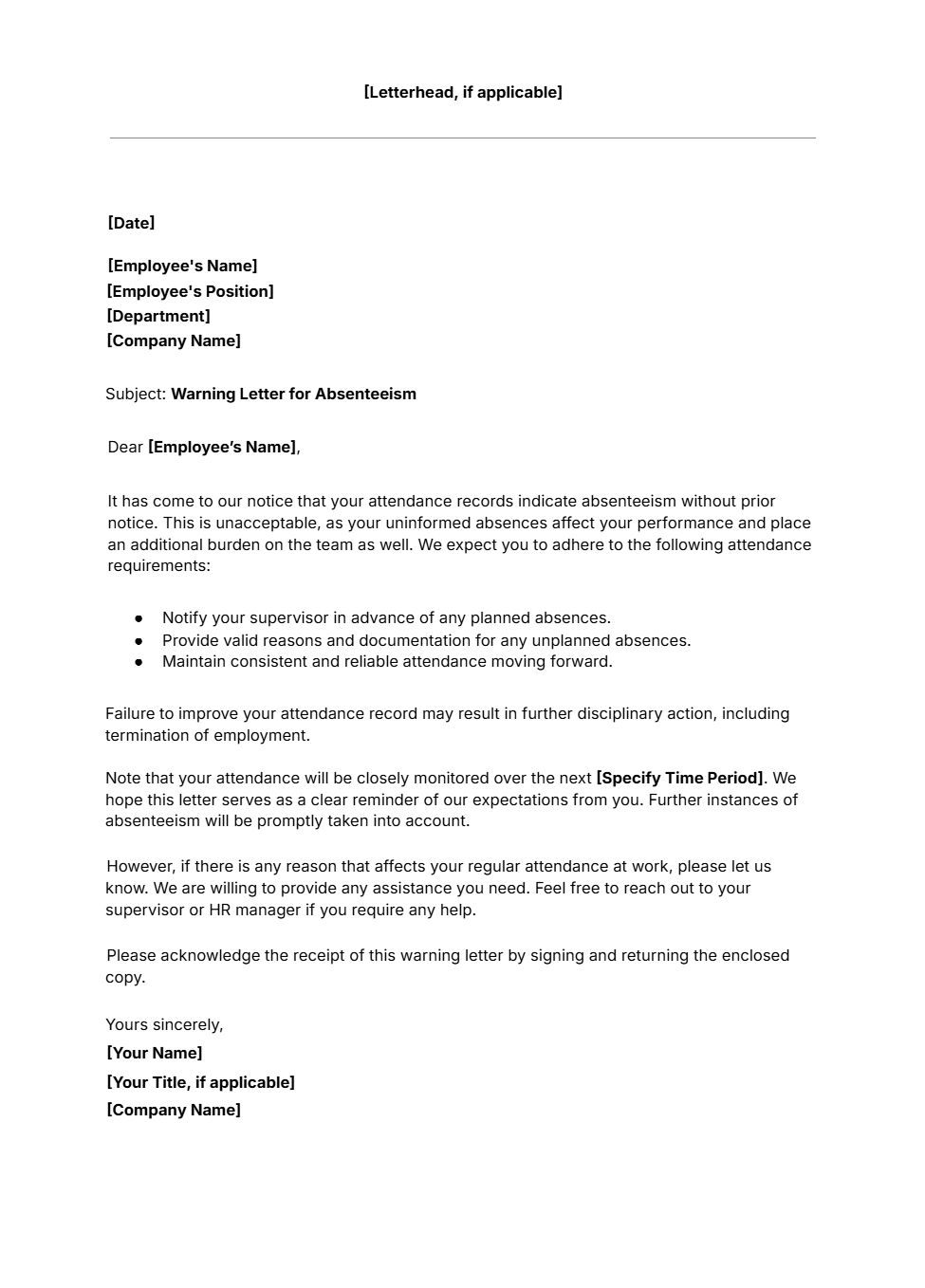Warning Letter for Absenteeism
We created a free warning letter for absenteeism template that you can fully customize to suit your company’s tone, policies, and disciplinary procedures.
What is a Warning Letter for Absenteeism?
A warning letter for absenteeism is a formal notice issued to an employee whose attendance record shows repeated or unexplained absences. It serves to address the issue, clarify expectations, and give the employee a chance to improve before further action is considered.
This letter is typically issued after informal warnings or when absenteeism begins to impact team performance or operational efficiency.
A formal warning letter provides clarity, consistency, and a documented approach to managing absenteeism. Here are the key benefits: What are the Benefits of Using a Warning Letter?
A professional warning letter for absenteeism typically includes:
If absenteeism is linked to personal, medical, or other legitimate reasons, it’s important to respond with empathy and openness. Employees are encouraged to communicate any challenges they are facing, as doing so may help prevent future misunderstandings. In cases where the absence is justified and properly communicated, managers or HR may issue a leave approval letter to formalize the approval of time off. Encouraging timely requests and proper documentation helps maintain transparency and supports a healthy work environment. What is Included in a Warning Letter for Absenteeism?
What if an Employee Needs Support?

Jibble’s free warning letter template for employee absenteeism


